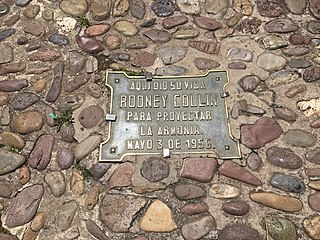A Quote by Martin Luther
Love is an image of God, and not a lifeless image, but the living essence of the divine nature which beams full of all goodness.
Related Quotes
God never gives dominion to any creature which has not received his image. His image is love. Other things belong to God; but God is love. No creature that has not love will be allowed to have a permanent empire. The Father of mercy will not put the reigns of government into a hand that has no heart. Dominion is a very solemn thing; it may oppress, crush, destroy. The Father must have a guarantee for its gentleness. What guarantee can there be but his image - the possession of a nature tender as the Divine?
In recent years my understanding of God had evolved into increasingly remote abstractions. I'd come to think of God in terms like Divine Reality, the Absolute, or the One who holds us in being. I do believe that God is beyond any form and image, but it has grown clear to me that I need an image in order to relate. I need an image in order to carry on an intimate conversation with what is so vast, amorphous, mysterious, and holy that it becomes ungraspable. I mean, really, how to you become intimate with Divine Reality? Or the Absolute?
To Whom does our God say, 'in our image' (Gen. 1:26), to whom if it is not to Him who is 'the brightness of His glory and the express image of His Person' (Heb. 1:3), 'the image of the invisible God' (Col. 1:15)? It is then to His living image, to Him Who has said 'I and My Father are one' (Jn. 10:30), 'He who has seen Me has seen the Father' (Jn. 14:9), that God says, 'Let us make man in our image'.
Divine love, agape, is self-sacrificing love, which sounds difficult, as it is, and not very attractive. If the best image we have of love is of a man who's been tortured and hung upon a cross to die an excruciating death, this is something that human beings find very, very hard to understand as love. But it is the highest Christian image of love.
Because the divine goodness could not be adequately represented by one creature alone, God produced many and diverse creatures, that what was wanting in one in the representation of the divine goodness might be supplied by another. For goodness, which in God is simple and uniform, in creatures is manifold and divided. Thus the whole universe together participates in the divine goodness more perfectly and represents it better than any single creature.
To love! To surrender absolutely, to prostrate oneself before the divine image, to die a thousand imaginary deaths, to annihilate every trace of self, to find the whole universe embodied and enshrined in the living image of another! Adolescent, we say. Rot! This is the germ of the future life, the seed which we hide away, which we bury deep within us, which we smother and stifle and do our utmost to destroy as we advance from one experience to another and flutter and flounder and lose our way.
There is no God separate from you, no God higher than you, the real "you." All the gods are little beings to you, all the ideas of God and Father in heaven are but your own reflection. God Himself is your image. “God created man after His own image." That is wrong. Man creates God after his own image. That is right. Throughout the universe we are creating gods after our own image. We create the god and fall down at his feet and worship him; and when this dream comes, we love it !








































